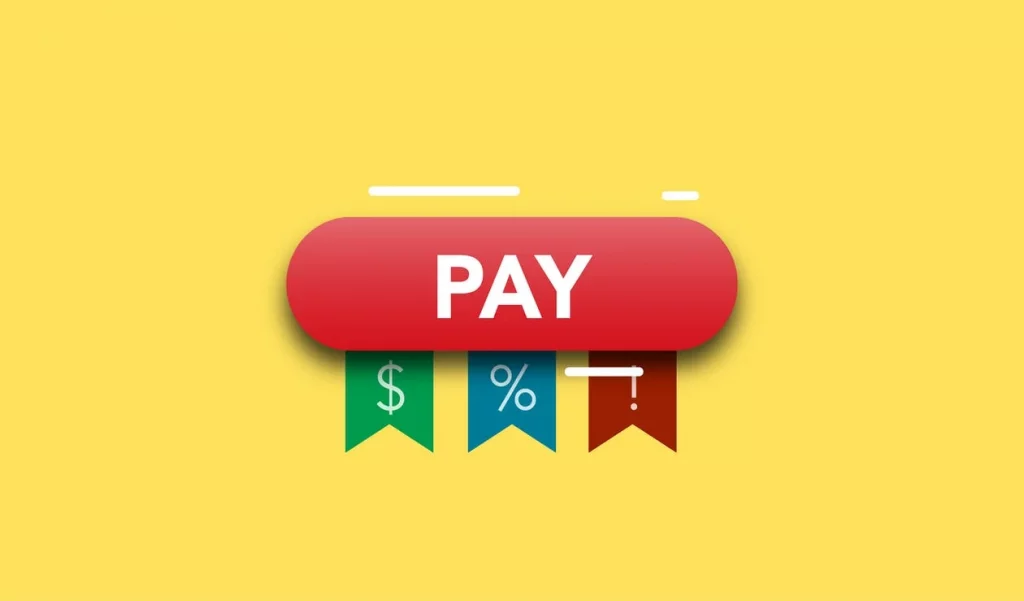Brokers With Commission-Free Investing
Brokers with commission free-investing offer fee-free trading on stocks and popular assets. This guide explains how online brokerages make money, what commission-free investing is, plus the best brokers in 2026. We also list the benefits and drawbacks of commission-free investing for swing traders.
Top Brokers With Commission-Free Investing for United States





















Commission-Free Investing Explained
A commission is a fixed fee charged by a brokerage when you buy or sell securities. Commissions are usually displayed as a percentage of assets traded, for example, 1% – 5%, or a flat fee, such as $10 per trade.
Let’s say you purchase one Apple share for $200 and the commission is 1%. You will be charged a $20 fee. This may also apply if you sell the share later down the line. With the flat-fee model, you could be charged a fixed $10 regardless of whether you buy one share or five shares. Note, with the percentage-based commission, most brokers also enforce a minimum payment, for example, 1% with a minimum charge of $5.
As the name suggests, commission-free trading brokers essentially waive this fee, reducing costs for investors. And while charges can feel low, commissions can quickly add up and eat into returns. This is particularly true for swing traders that open and close many positions. Let’s say that over the course of a year you made a total return of 10%, equal to $1,000. If you owe 3% in commission charges ($300), your actual return after fees is $700. Not only does this reduce your profit margin, but it also limits how much capital you have to reinvest.
History
Robinhood became the first commission-free trading broker in 2013. The simplicity of its pricing model was a huge success with six million new accounts opened in the following five years. It is worth pointing out, however, that the firm continued to make money through other methods, including margin lending, rehypothecation and charges for premium services.
Still, with Robinhood attracting new clients while its bottom line soared, other brands started to follow suit. eToro, Interactive Brokers and TD Ameritrade are just some of the big names that now offer commission-free investing on popular stocks and assets.

Benefits of Brokers With Commission-Free Investing
There are several advantages of signing up with brokers that offer commission-free investing:
- Profit Margins – The key benefit is lower fees and higher profits. A commission-free structure means you keep all of your revenue with straightforward visibility over profit and loss
- Portfolio Diversification – Access to assets with zero commission means you have more capital to play with, making it easier to build a mixed portfolio
- New Traders – For beginners and inexperienced investors, commission-free trading brokers make it easy to speculate on stocks and shares without having to worry about upfront charges
Drawbacks of Brokers With Commission-Free Investing
There are also some downsides to commission-free trading:
- Hidden Fees – Some brokers use their commission-free stance to hide additional fees. This can include expensive account maintenance charges, currency conversion rates, subscription fees, and margin lending. Wider spreads may also apply
- PFOF – Many brokers with commission-free investing use the Payment for Order Flow (PFOF) model. Firms essentially sell order flow to market makers and exchanges who make money by providing liquidity to markets. But this approach can be bad news for retail investors, leading to poor quality executions with higher purchase prices and lower sell prices
- Fewer Assets – Zero commission brokers tend to offer access to a narrower range of assets versus some online trading platforms. Commission-free trading is primarily offered on stocks, ETFs and options. It is less common to find fee-free trading on futures, mutual funds, forex and cryptos
Comparing Brokers With Commission-Free Investing
There is more to picking a brokerage account than commission charges. Although fee-free trades are attractive, you should also consider the level of service, trading platform availability and the range of assets. Below we outline some key considerations:
Other Fees
Many brokers that offer commission-free investing will look to cover the administration costs of placing trades through alternative methods. Charges may apply to services that are not directly related to buying or selling assets. Trading 212, for example, is moving to a ‘freemium’ based subscription service, meaning basic products and features will remain free while clients will have to pay for additional access and upgrades.
Also check that average spreads are in line with the industry. In addition, keep an eye out for account inactivity penalties, higher forex conversion charges, plus overnight rollover rates. Fees for making an initial deposit can also cut into your capital.
Assets & Markets
Many online brokers offer commission-free investing on stocks, ETFs and options. But traders looking for zero-fee forex and futures products, for example, may struggle. Make sure the provider you open an account with offers opportunities in the markets that you are interested in.
Educational Resources
Whether you are an experienced investor or a complete beginner, firms with comprehensive educational content, investment analysis and bespoke tools offer a market-leading trading environment. Video tutorials, in particular, are often best for beginners and cover the basics of using trading platforms and applying strategies.
Platforms
Does the broker offer proprietary software, tools and analysis services? Alternatively, does the firm provide access to industry-standard terminals such as MT4 and MT5? Additional features such as margin calculators, asset heat maps and economic calendars may also prove useful.

Customer Support
Access to a responsive customer service team should be a key consideration. Companies with 24-hour availability through popular channels are the most reliable. Responsive live chatbots are particularly useful for new traders.
Payments
How can you deposit funds into your account and withdraw profits? Credit and debit cards, international bank wire transfers and e-wallets like PayPal are available at most of the top brokers with commission-free investing. Also remember that some payment methods may have a minimum deposit requirement.
Leverage
Investors use leverage to increase potential returns by borrowing funds from their broker. The amount of leverage available varies by regulator and trading jurisdiction but can be as high as 1000x times your initial investment.
Note, access to leverage can be restricted when trading on a zero-commission account. Also, many brokers with commission-free investing use margin payments from traders to generate additional revenue by moving capital into bank accounts where they receive a favorable interest rate.
Top Brokers With Commission-Free Investing
Below we list some of the best global brokers that offer commission-free trading:
- SoFi – $0 for stock trades
- eToro – $0 for stock trades
- TD Ameritrade – $0 for stock trades
- Vanguard – $0 for stock and ETF trades
- Interactive Brokers – $0 for stock trades
- E-Trade – No commission for stocks, ETFs or options
- Degiro – $0 for US stocks and selected ETFs
- Charles Schwab – No commission for stock and ETF trades
- Robinhood – No commission for stocks, ETFs, options & cryptocurrencies
Regulation & Security
There are concerns that commission-free trading is used to attract new customers to riskier, leveraged products, such as CFDs. A CFD is essentially a contract between a buyer and seller that stipulates payment must be made between the current price and the price when the product is sold. Importantly, investors do not own the underlying asset, such as a stock. Recognising this risk, the UK Financial Conduct Authority (FCA), among other regulators, have imposed mandatory losing percentage warnings on brokers’ websites.
Importantly, we don’t recommend signing up with unlicensed providers or risking more capital than you can afford to lose.
Bottom Line on Brokers With Commission-Free Investing
Brokers with commission-free investing are popular with aspiring swing traders, offering a low-cost, straightforward trading environment. However, as this article has outlined, look out for additional fees and inflated costs for other services. Use our tips above and list of top brokers to get started today.
FAQ
What Is Commission-Free Investing?
Commission-free trading means there is no direct fee or charge when placing a trade. This can appeal to investors starting out and those with limited capital. On the downside, some brokers look to make up for the saving through other charges.
How Do Brokers With Commission-Free Investing Make Money?
Most brokers look for alternative ways to cover the costs of executing trades, as well as applying a mark-up. This can include deposit and withdrawal charges, margin lending, account inactivity penalties and higher spreads. Many firms also sell their order flow to exchanges and market makers through the Payment For Order Flow (PFOF) model.
Is Commission-Free Investing Only Good For New Traders?
Trading with zero commissions appeals to traders of all experience levels. However, prospective customers should be aware that firms may offer lower quality executions, higher buy prices and lower sell prices if they adopt a Payment For Order Flow (PFOF) model.
Which Regulated Brokers Offer Commission-Free Investing?
Multiple global brokers that are regulated by a top-tier agency offer commission-free investing, including eToro, Interactive Brokers, and TD Ameritrade.
Do Brokers Offer Commission-Free Trading On All Assets?
Brokers normally only offer commission-free trade executions on some assets, such as stocks, ETFs and options. Forex and crypto products usually have a spread and commission charge to take into account.
